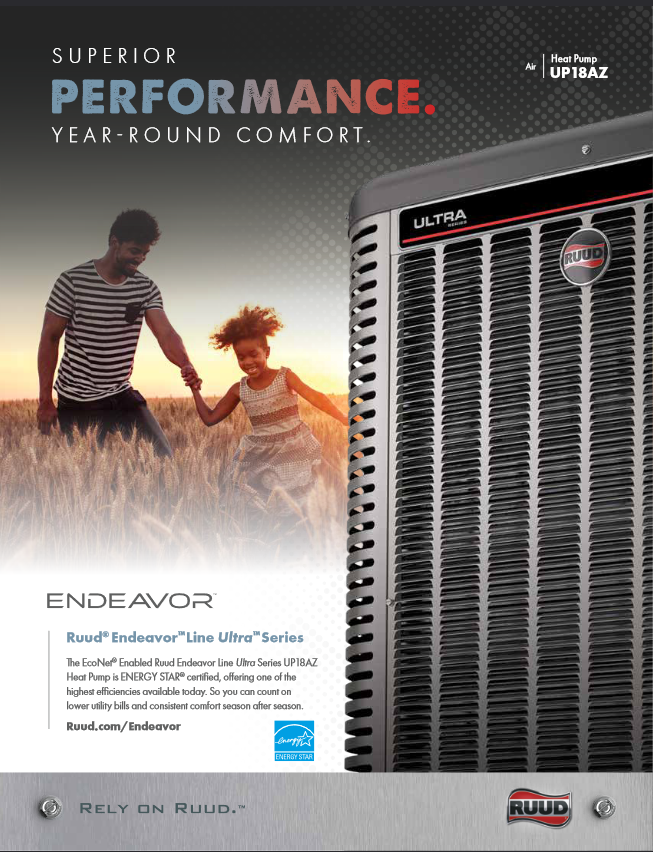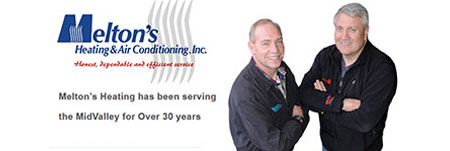Which Function Does a Heat Pump Excel at, Cooling or Heating?
In the early days of heat pump technology, their reputation primarily rested on their heating capabilities, offering less reliable cooling during summer. However, contemporary heat pumps have evolved to become remarkably efficient. They consume less energy compared to older systems while delivering exceptional climate control.

Today, even basic models surpass the efficiency of systems from 15 years ago. Despite using five times less energy for cooling than heating, modern heat pumps typically provide cooling on par with traditional air conditioners. Yet, the question remains: are heat pumps equally proficient in heating and cooling? Let’s find out the answer!
If you require heating and cooling services or a new heat pump, reach out to our expert team at Melton’s Heating & Air Conditioning!
Which Function Uses More Electricity?
Heat pumps consume significantly less energy when operating in cooling mode, approximately five times less. This efficiency arises from the fact that heat pumps extract warm air from the exterior when in heating mode. Since this mode is primarily utilized during cold weather, there’s typically a limited source of available heat for absorption.
Consequently, the heat pump must draw whatever air is accessible, heat it, and then distribute it throughout your home, resulting in increased energy consumption.
In most essential aspects, heat pumps operate identically to standard air conditioners. The primary distinction lies in the heat pump’s ability to reverse its process to deliver warmth. Essentially, it functions as a two-way air conditioner, so their performance is quite similar when comparing them directly. The heat pump simply offers additional capabilities!
Understanding Heat Pump Efficiency
Heat pumps demonstrate excellent efficiency in cooler climates, surpassing oil, gas, and electric HVAC systems threefold. However, there’s a condition. While top-tier heat pump replacements achieve 100% efficiency in sub-zero temperatures, some may struggle to perform optimally when the mercury dips below 20 degrees Fahrenheit.
Heat pumps utilize compressed refrigerants to generate heat, yielding four times more energy than on chilly days. Yet, in severe winter conditions, achieving the same results as traditional systems like furnaces requires additional design elements:
- Enhanced compression cycles.
- Refrigerants with low boiling points.
- Superior ambient airflow rates.
- Variable-speed compressors for efficiency adjustments in extreme weather.
Maintaining a consistent thermostat setting throughout the day can enhance winter energy efficiency, as maintaining warmth consumes less energy than generating it. Regular heat pump maintenance, scheduled biannually, is also vital for optimal performance.
Understanding Cooling Efficiency
The SEER (Seasonal Energy Efficiency Ratio) rating provides comprehensive insights into a system’s heating and cooling capabilities, representing electricity usage and cooling output. Contemporary heat pumps can attain impressive SEER ratings, with some reaching up to 20.5, although the average falls within the 15 to 17 range.
Mini-split systems can achieve remarkable SEER ratings of 25, while the highest SEER rating for central air conditioners stands at 26, making them closely competitive. The finest heat pumps can deliver cooling nearly as effectively as top-tier central air conditioners.
SEER ratings also indicate energy consumption, and few systems can surpass the energy efficiency of the most efficient heat pumps. During cooling mode, they use only one-fifth of the energy they consume in heating mode, making them exceptionally efficient during the summer.
Tips for Maintaining Your Heat Pump
In order to maximize the efficiency of your heat pump for both heating and cooling, we provide a few simple tips to follow to help you maintain your appliance.
- Heat Pump Repair
SEER ratings aren’t constant; they tend to change with time. While your system may initially deliver peak energy efficiency, wear and tear can gradually reduce effectiveness. If your system starts blowing cool air during the winter, it could indicate issues like refrigerant leaks, malfunctioning components, or faulty reversing valves. The best thing to do to maintain your heat pump is to get heat pump repair from an experienced technician.
- Stay On Top of Cleaning
Develop a routine of inspecting your heat pump in winter for any indications of excessive ice or snow accumulation. Ensure that the heat pump’s top, sides, and bottom remain free from snow, ice, and leaves, especially following adverse weather conditions. Consistent monitoring helps prevent potential problems.
- Be Cautious When Cleaning
To thaw snow and ice:
Apply warm water or use a gentle stream from a hose on the pump’s surface.
- Avoid using sharp objects to chip or dislodge ice from the coils, as it may result in significant damage and potential injury.
- If the unit ices up again after cleaning, seek a professional heat pump service.
- Keep Away from Gutters
Steer clear of situating the outdoor unit directly beneath a leaking gutter. In colder months, the water dripping from the gutter can freeze upon contact with the unit’s surface. This ice buildup obstructs the airflow around the unit, potentially causing it to become completely frozen and non-functional.
- Keep it Off the Ground
Elevate heat pumps by 4-8 inches above ground level. This elevation prevents snow and ice from accumulating on the coils and ensures proper drainage for the condensed moisture, similar to how an air conditioner operates.
- Don’t Use ‘Auto’ Mode
The “auto” mode maintains a steady home temperature by switching between cooling and heating. If your backup heating system is active while your system is set to “auto,” you wouldn’t want the heat pump to inadvertently cool your home when it’s already warm indoors. Keep your system in “heat” mode during the season, and switch to “cool” only when temperatures rise.
Get in Touch with Our HVAC Technicians for Heating and Cooling Services!
Overall, your heat pump will exhibit substantially lower energy consumption during summer than in winter. Nevertheless, with consistent maintenance of a variable-speed heat pump installation, you can attain a SEER rating equivalent to or even higher than other HVAC systems. Over the past decade, heat pumps have demonstrated remarkable efficiency improvements, making them ideal for reducing replacement expenses.
If you’re considering a heat pump upgrade, get in touch with Melton’s Heating & Air Conditioning, where our experienced HVAC technicians possess years of expertise in servicing and installing heat pumps, ensuring your new system operates at peak efficiency.




